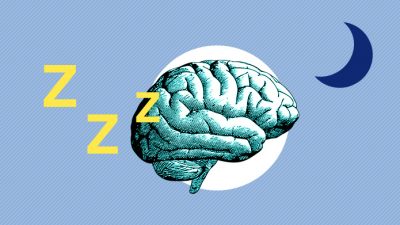You’re probably familiar with white noise, the static sound that can block the din of traffic or the neighbors upstairs. But what’s colored noise, and why is occupational therapist and certified sleep consultant Annie Schlecht so gung-ho about it?
It turns out your ocean wave app’s got nothing on colored noise for encouraging restful Zzz’s. Join Annie and me as we discuss the link between occupational therapy and slumber, why nature sounds can hinder shut-eye, and the one thing every parent can do to help their child sleep.
What’s the usual focus of occupational therapy?
The word “occupation” refers to any task or activity a person finds meaningful or does regularly. Think about the tasks you and your family members take part in every day. Now imagine doing those tasks with a physical injury or cognitive delay. This is where OT’s come in. We work with people of all ages to master skills in eight main areas, including daily living, education, work, play, and sleep.

Which came first, your interest in occupational therapy or sleep?
Occupational therapy. I’ve focused my career on the birth to three-years-old population, or early intervention. I’d go into the home and work with babies to help them master developmental delays. I soon saw a huge correlation between their developmental success and the quality of their sleep.
85% of brain growth and development happens in the first 3 years of life. Most learning and memory processing take place while we sleep, specifically during REM sleep. Healthy sleep equals healthy development.
How do occupational therapy and sleep complement each other?
Sleep is a primary pillar in the OT scope of practice. Without adequate sleep, we don’t have the physical or mental capacity to rock our other daily tasks.
Do you work mostly with children or adults?
My primary focus is pediatrics, but as my sleep consulting career has progressed, I’ve taken on more adult clients who want to improve their sleep without the use of medications.
You’re a certified infant massage instructor. Is this skill useful with babies who need help sleeping?
Yes! I encourage every parent I work with to incorporate a massage into their child’s bedtime routine. Parents can build a deeper bond with their babies, and the face-to-face interaction can facilitate language development. Growth hormone is released. Body awareness and coordination improve. Children can reach deeper levels of relaxation, which increases the quality of sleep.

I read your blog post about sound machines and sleeping, and found the color noises information fascinating. What are color noises, and why are they better than other sound machine settings?
I recommend a noise machine if you have trouble filtering out environmental sounds such as a furnace kicking on. My favorite machines have white, grey, pink, or brown noise settings. The difference between the ‘colors’ is the frequency. White is the highest, brown (my personal fave) is the lowest, and pink is in the middle.
I like these specific settings as they have a consistent, static sound. It’s best to avoid the fluctuations in thunderstorm, wind, or wave settings. I also like that static color sounds don’t trigger memories or emotional responses. One reason adults struggle to fall asleep is because of excessive mind chatter and daily anxieties. For example, the sound of ocean waves makes me think of my last vacation. Then I wonder, “How can I make more money for another vacation… I should invest more into my retirement plan, not vacations… Did I send a Christmas card to my financial advisor?” I don’t want to be thinking about my financial adviser when I’m supposed to be falling asleep.
What do you wish everyone knew about sleep?
Sleep is a learned skill. It’s never too early to start working on this skill set, and never too late to improve it. I truly believe it’s the foundation of our physical, mental, and emotional well-being.
A big thank you to Annie Schlecht for chatting with Sleepopolis! You can find out more about her and her practice on her website, Facebook, and the Sleepopolis Expert Hub.

